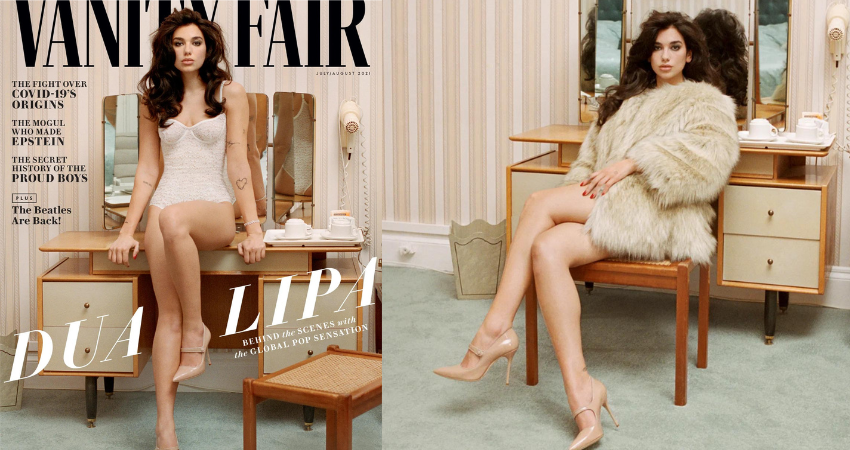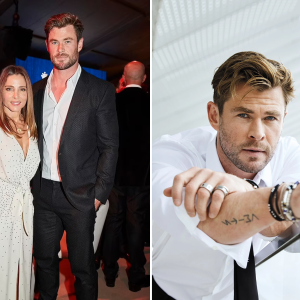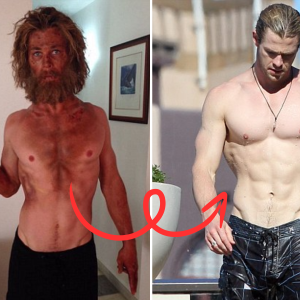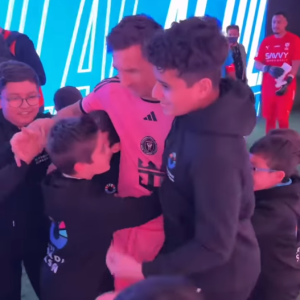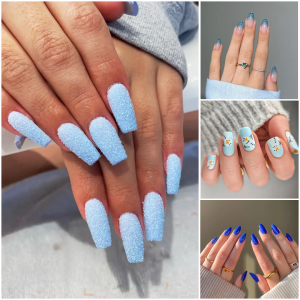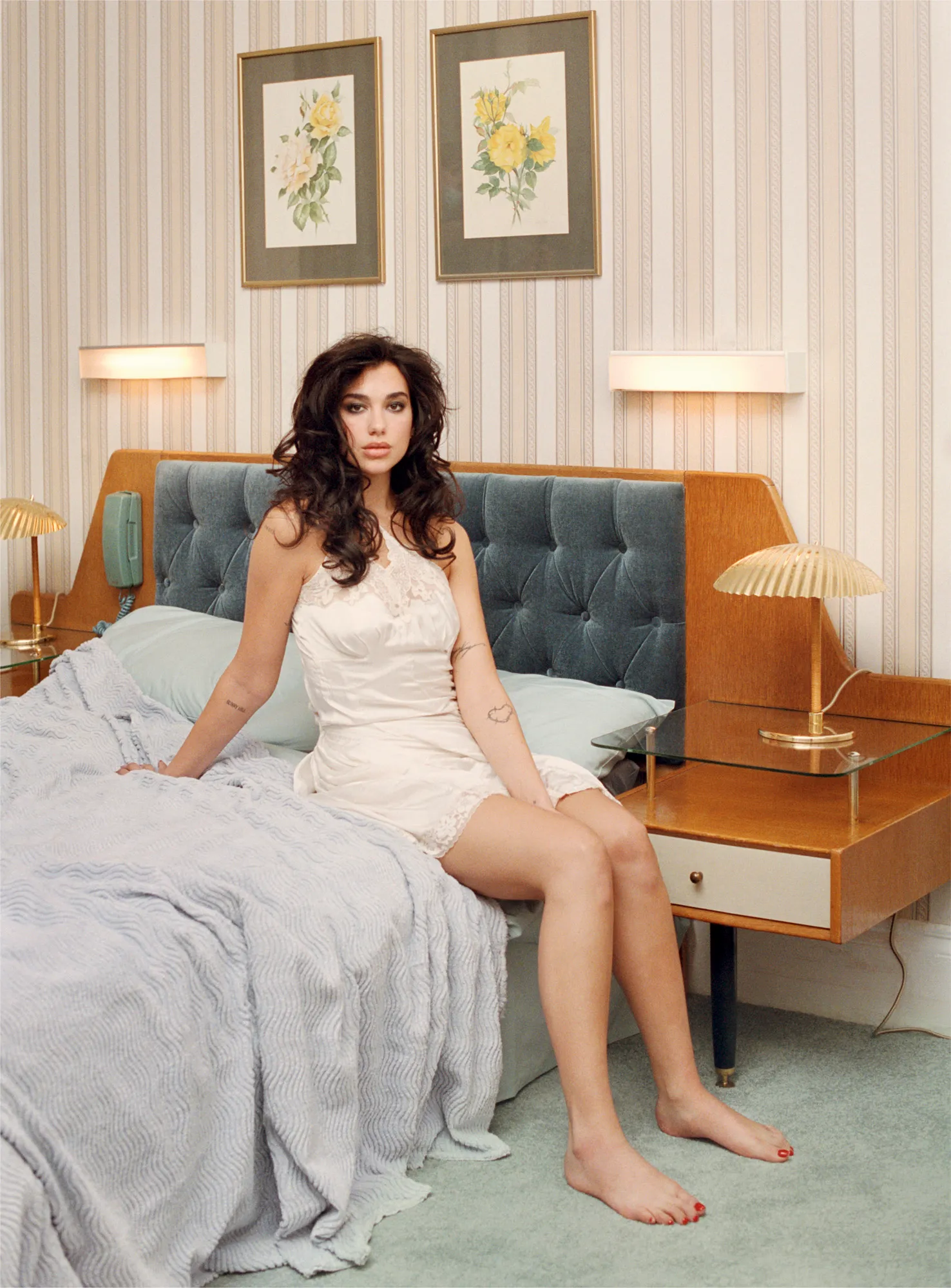
t was fall 2019 and Dua Lipa, the London-based pop singer, was having a rare moment of self-doubt. She had just scrubbed her Instagram clean, 21st-century pop-star code for symbolic rebirth, and was readying to release “Don’t Start Now,” the first single from her second record, Future Nostalgia. The follow-up to her well-received if not earth-shifting self-titled debut, this was meant to serve as an artistic coming of age: an exuberant statement aimed at pop charts that had been dominated by ballads and downcast hip-hop for a few years. The hardest work was done, and Lipa loved the song—a thumping, bittersweet dance floor anthem full of high-disco rattles and flourishes that had confidence to spare. Yet that October, she couldn’t shake a certain anxiety, one familiar to anyone who’s ever released a creative endeavor online.
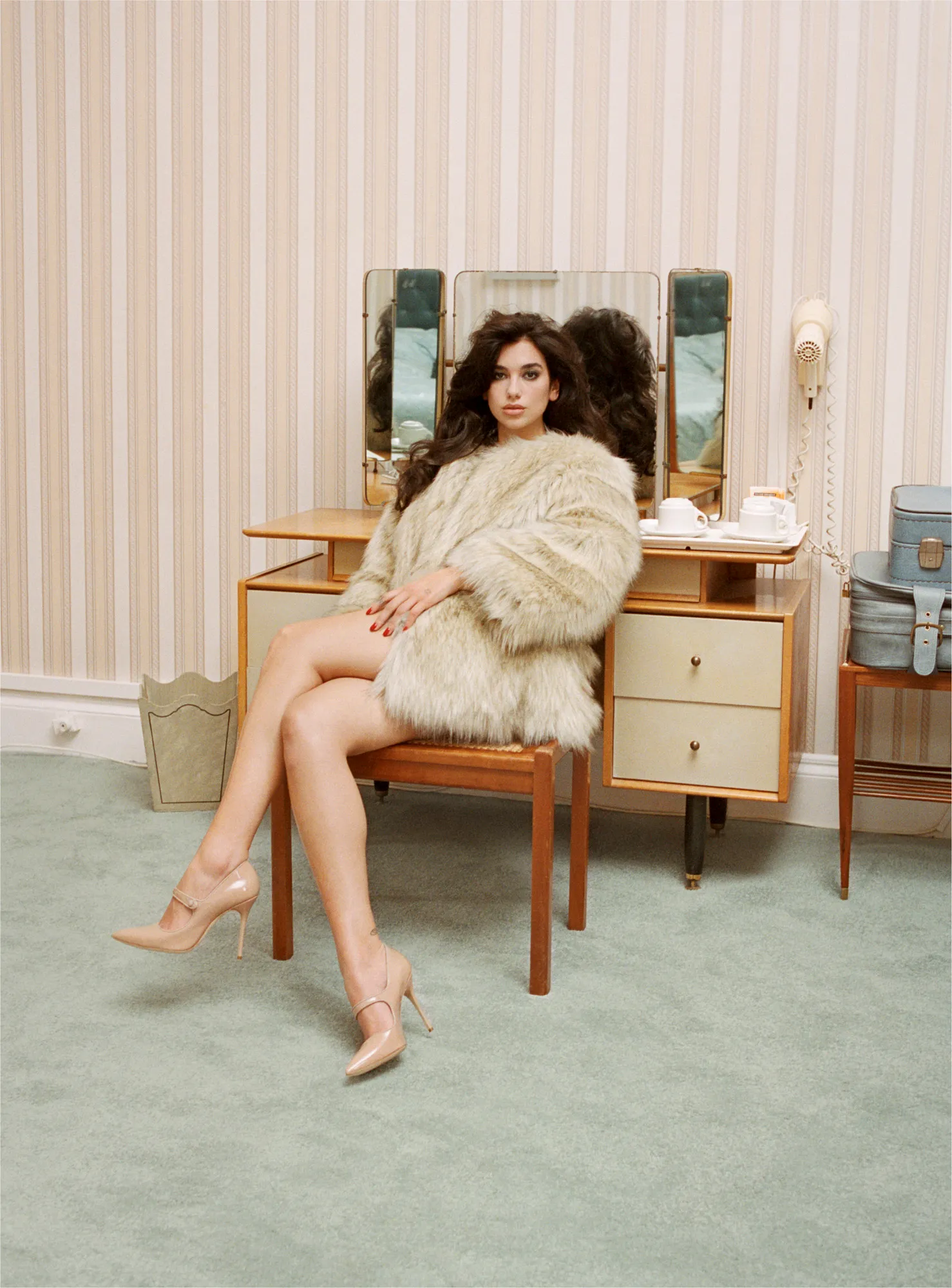 “I was like, Oh, it’s very different to what people have heard from me,” Lipa said on a Zoom call from her London apartment in April. She sat on a couch under a playful wall sculpture, dressed in the immaculate loungewear she favored even before the pandemic. Between pauses to rein in her one-year-old rescue puppy, Dexter, she recalled that on the run-up to the song’s Halloween debut, her apprehension only grew. She tried meditation. She tried hypnotherapy.
“I was like, Oh, it’s very different to what people have heard from me,” Lipa said on a Zoom call from her London apartment in April. She sat on a couch under a playful wall sculpture, dressed in the immaculate loungewear she favored even before the pandemic. Between pauses to rein in her one-year-old rescue puppy, Dexter, she recalled that on the run-up to the song’s Halloween debut, her apprehension only grew. She tried meditation. She tried hypnotherapy.
“I think I just needed something to just calm my brain down and help me kind of get rid of any anxiety,” she said, “and almost be able to tell myself that everything that I’ve learned I could do in my sleep.”
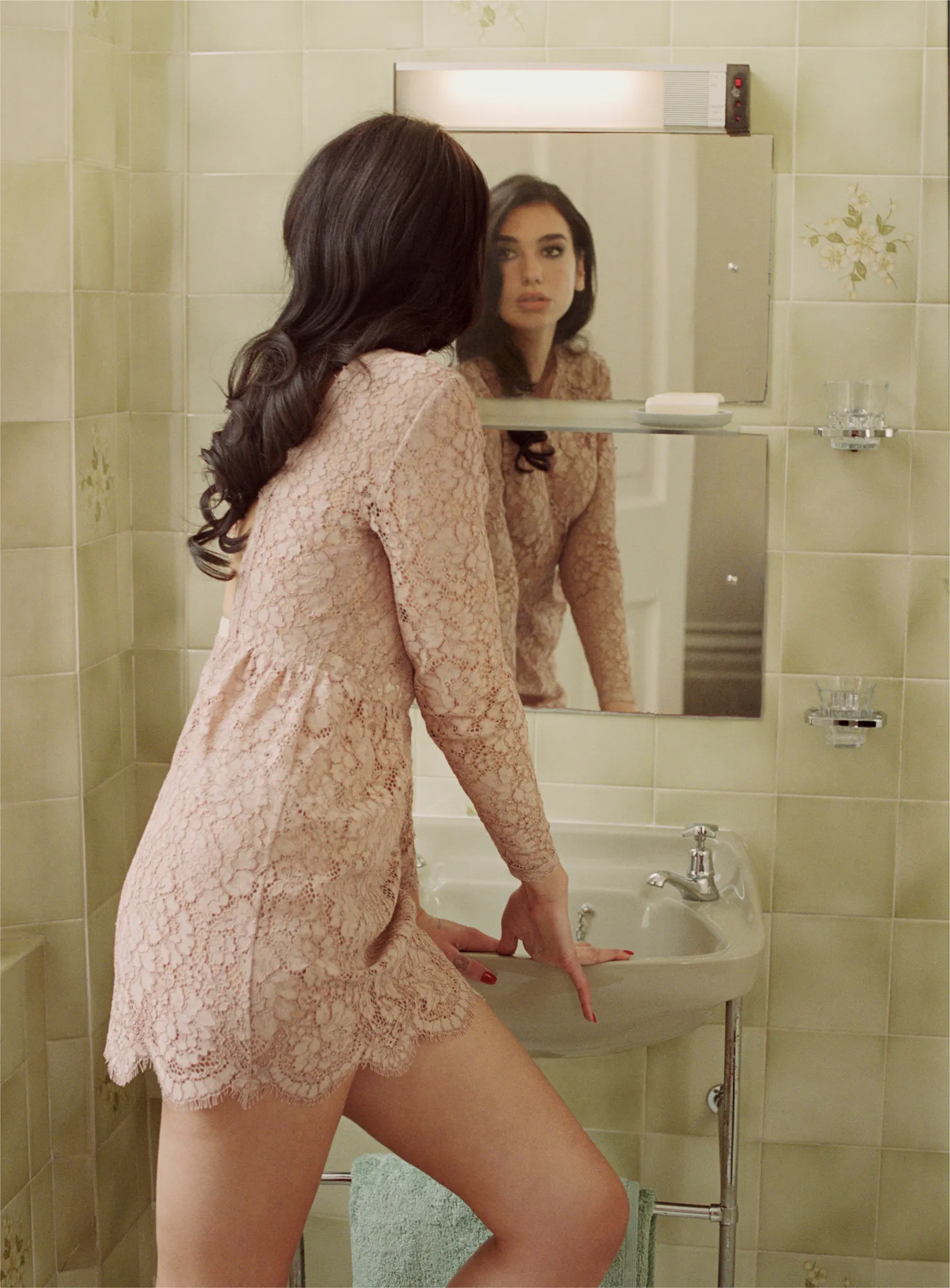
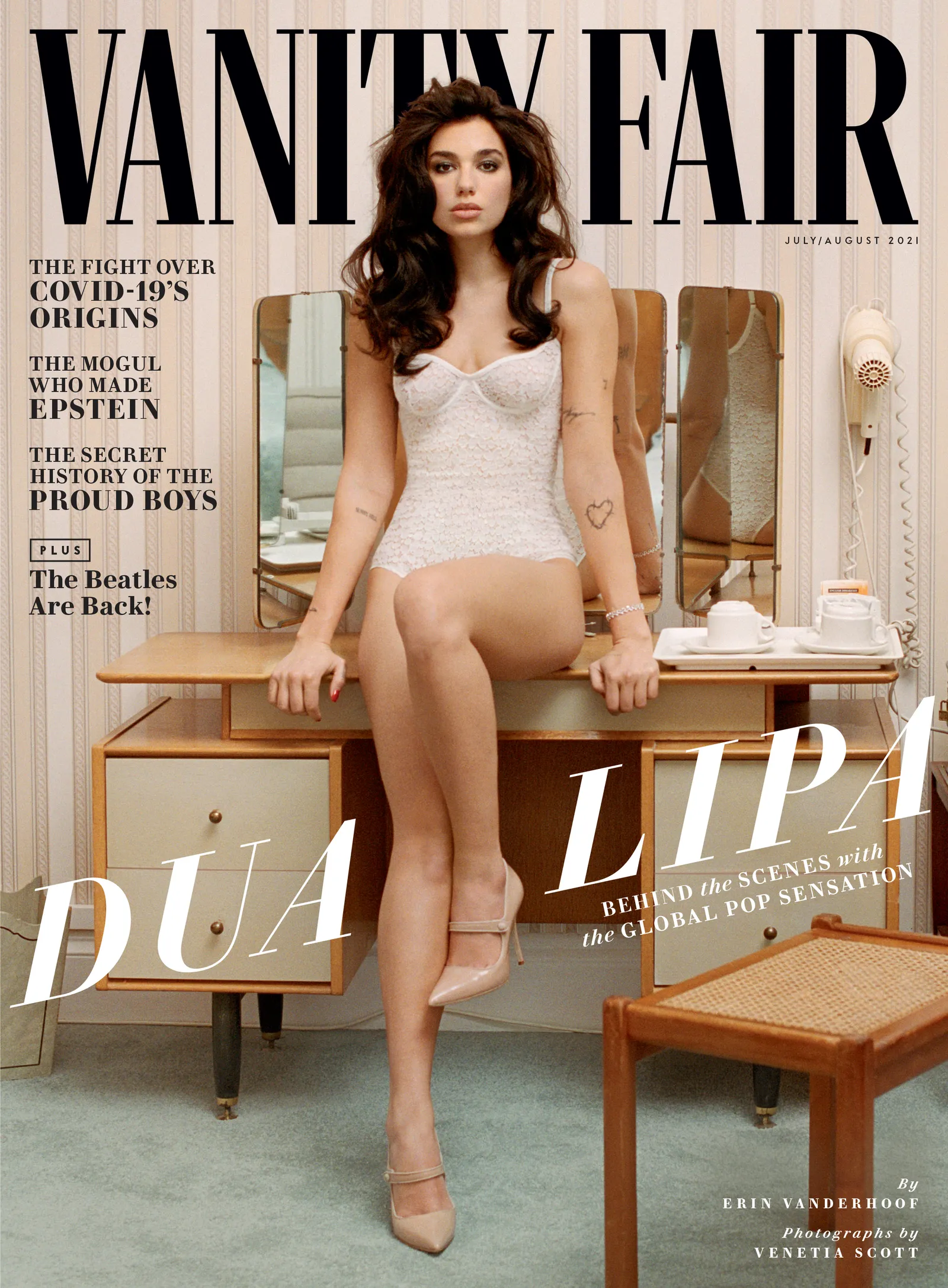
That she had a pre-pandemic lesson in uncertainty might have helped her chart the course. Her longtime manager, Ben Mawson, told me that at first the team hesitated about going forward through the global shutdown, as many other artists chose to last year, but ultimately saw it as a unique opportunity. “She’d been waiting for this moment,” he said. “It was music that was uplifting and happy, and so we thought maybe the world needs this.”
“THERE WAS JUST THIS PRESSURE…PEOPLE JUST TELLING ME THAT I WASN’T GOOD ENOUGH OR THAT I WASN’T DESERVING OF IT OR WHATEVER IT WAS…”
To American listeners, Lipa’s success may seem to have come from nowhere. But her story is one of continent-crossing perseverance, a bit of luck, and one of those generational pop personalities who simply will not be denied. Future Nostalgia would have been an unusual record even if it hadn’t arrived at the beginning of a global crisis. It takes a buffet-table approach to the sonic decorations from decades’ worth of disco, funk, and synth pop while also showcasing Lipa’s keen ear for complex vocal melodies and her distinctively raspy and lithe voice. It marries the efficiency of structured pop with the curiosity of dance music, yet in between pulsing bass lines and naturalistic percussion, it’s full of silence: little spaces here and there that telegraph a breath before a song blooms into something new. Its emotional and dynamic range is broad, yet it all passes by effortlessly.
The record’s title came to Lipa before anything else. She almost used “future nostalgia” as a backdrop for a 2018 awards-show performance before deciding that she wanted to save it for something special. “I loved jumping into what felt like a story,” she said. “I’ve really loved the idea of Future Nostalgia having its own world.” Though Lipa worked with a long list of collaborators on the album, a core group of contributors from her 2017 debut, including songwriter Clarence Coffee Jr. and producer-writer Stephen “Koz” Kozmeniuk, returned to the studio with her for the Future Nostalgia sessions in summer 2018. Both said that the experience of working with Lipa is marked primarily by how fun it is. (“I have summer-camp vibes with one of my best friends,” Coffee told me.)
